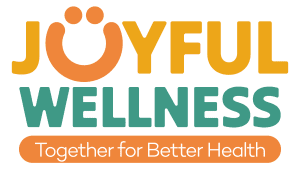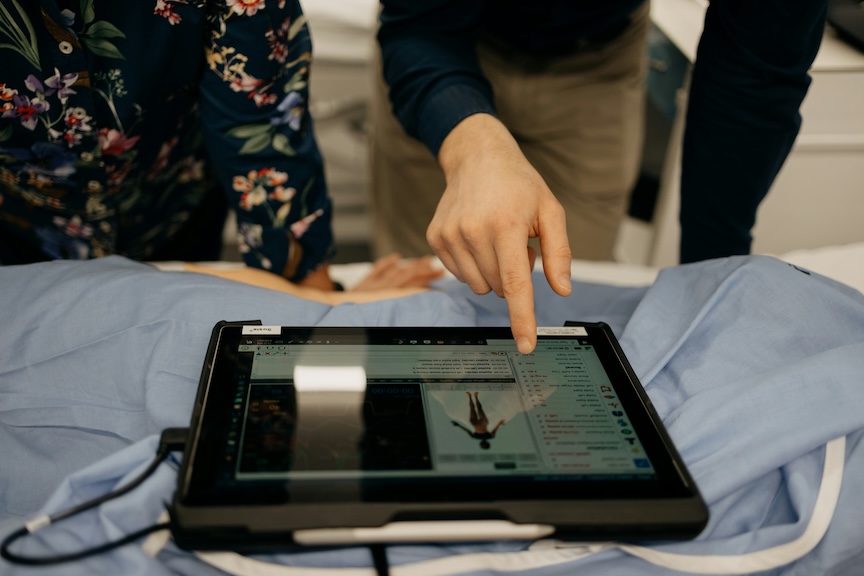Managing chronic diseases needs a multifaceted approach that involves sustained treatment, adjustments in lifestyle and diet, regular medical check-ups, and the participation of a strong support group. What it doesn’t need are unfounded misconceptions that hinder treatment and recovery rather than support these.
Two of the chronic diseases with a high mortality rate in the Philippines — and also replete with false notions — are diabetes and cancer. With such worrying statistics, it is vital to manage these using only scientifically proven treatment plans.
“Preliminary data from January to September 2023 indicate that neoplasms, or cancer diseases, accounted for 10.6 percent of all deaths in the Philippines,” says oncologist Lou Jorel P. Tia, MD. “These statistics underscore the urgent need for enhanced cancer prevention, early detection, and treatment strategies across the nation.”
Diabetes presents similarly troubling numbers.
“In 2022, diabetes ranked fourth among the top causes of morbidity and mortality in the Philippines,” says diabetologist Deborah Jane Marzo-delos Reyes, MD. “Each year, there is a 7.1 – 7.8 increase in the young adult population with diabetes.”
It is vital, therefore, to be informed about the facts regarding these two chronic diseases.
Myths and facts about diabetes and cancer
Myth: Diabetes can be cured with natural remedies or alternative medicines.
Truth: There is no cure for diabetes.
Deborah Jane Marzo-delos Reyes, MD, says, “Once you’re diagnosed with diabetes, you will forever be diabetic; but it does not mean you will take medicines [throughout your] lifetime. That will depend on how well you manage your sugar through lifestyle changes and regular monitoring.”
Marzo-delos Reyes also debunks the myth that certain plants can provide insulin.
“There is no insulin in plants. Only the human body produces insulin in our pancreas,” she says. “No herbal supplement replaces medically proven treatment, though some natural remedies and alternative therapies may help manage symptoms of diabetes.”
If you do decide to try these non-traditional remedies, it is best to consult your doctor first.
Myth: Only old and obese people can have diabetes.
Truth: Diabetes can occur at any age, at any weight.
Anyone, child or adult, can develop type 1 diabetes (also known as diabetes mellitus), though it often occurs in children. Type 2 diabetes is now increasingly seen in young adults due to the rising incidence of obesity. People with obesity have insulin resistance; in this instance, cells don’t respond as they should to insulin, a hormone that regulates blood sugar.
“But type 2 diabetes has also been found to occur in slim individuals, especially those whose parents are also diabetic,” says Marzo-delos Reyes. “This gives them a 30-percent chance of developing the disease on top of an unhealthy lifestyle.”
Myth: Diabetes isn’t serious.
Truth: It is a serious and chronic medical condition.
“We often call it a lifestyle disease that requires lifelong management together with medication and changes in lifestyle,” says Marzo-delos Reyes.
If not properly addressed, diabetes may also lead to complications, such as heart disease, kidney failure, and loss of vision.
Myth: Eating pork, processed food, or sugar instantly causes cancer.
Truth: No specific food group is responsible for the development of cancer.
Lou Jorel P. Tia, MD, acknowledges that diet does influence cancer risk, but there are no absolute specifics. In fact, according to Tia, fad diets aimed at ‘curing cancer’ can even hinder recovery, especially in cancer patients undergoing chemotherapy.
“High consumption of processed meat is linked to a greater risk of colorectal cancer,” he says. “But no single food causes or cures cancer.”
To manage cancer, Tia strongly recommends following a balanced diet, as “obesity has been proven to increase cancer risk.”
Myth: Cancer is a death sentence.
Truth: If caught early, cancer is generally curable.
Because of advances in medical technology, cancer therapies, and the prevalence of cancer awareness campaigns, it is highly possible to detect cancer in its early stages.
“That is why early detection through regular screening is so important,” says Tia. “In fact, even cancers detected at later stages can still be treated effectively.”
With personalized treatment plans, even patients with stage 4 cancers can have longer survival rates coupled with a good, comfortable life.
Myth: Herbal or alternative treatments can cure cancer.
Truth: Some herbs can ease the effects of symptoms, but they cannot cure cancer.
“While some herbs may support general health or provide symptom relief, they are not curative,” says Tia. “They may even delay or interfere with proper medical care, which often leads to patients presenting with late-stage cancer.”
Perhaps, to supplement conventional treatment and ease symptoms, some patients try herbalism. But as Tia strongly recommends, taking evidence-based approaches to treating cancer is still the best way to beat this illness.
Myth: Biopsy or surgery makes cancer grow faster.
Truth: With advances in surgical and biopsy techniques, the risk of cancer spreading due to a biopsy or surgery is extremely low.
Tia considers this particular myth not just a common misconception but also a dangerous one.
“Biopsies are essential for accurate diagnosis, and surgery is often a key part of curative treatment,” he says. “Avoiding them can lead to delayed treatment and allow the cancer to progress unchecked.”
How to manage chronic diseases
Preventing the development of chronic diseases, including diabetes and cancer, begins with you. Tia and Marzo-delos Reyes recommend integrating the following into your daily routine:
- Exercise for at least 30 minutes every day. Try brisk walking uphill, swimming, or cycling. Regular physical activity improves insulin sensitivity. It is also crucial for lowering cancer risk, particularly for breast, colorectal, and prostate cancers.
- If you smoke tobacco or drink alcohol, quit. Alcohol may lead to weight gain, which may lead to insulin resistance. Smoking tobacco raises the risk of cardiovascular disease and is the leading cause of preventable cancers, particularly lung, throat, and oral cancers.
- Maintain a healthy diet. Tia confirms that “eating a balanced, nutritious diet is one of the most effective ways to reduce the risk of cancer.” Marzo-delos Reyes also upholds the importance of avoiding sugary drinks and processed foods high in sugar and unhealthy fats.
- Steer clear of stress. Managing stress is as important as medical treatments. Chronic stress has been found to elevate blood sugar and increase the risk of cancer.
- Sleep well and enough. The body needs regular deep sleep to heal and rebuild itself.
Managing chronic diseases is as much the patient’s responsibility as it is their medical team’s. With the right information, early detection and treatment are highly possible.
The article is based on interviews with Deborah Jane Marzo-delos Reyes, MD, internal medicine – diabetology and Lou Jorel P. Tia, MD FPCP FPSO FPSMO MCMMO, internal medicine – medical oncology.
Deborah Jane Marzo-delos Reyes, MD, is affiliated with Alabang Medical Clinic-Muntinlupa, Ospital ng Muntinlupa, Medical Center Muntinlupa, and New Divine Mercy Hospital.
Find more information on the practice of Lou Jorel P. Tia, MD FPCP FPSO FPSMO MCMMO here.
DISCLAIMER
This article provides general information and does not constitute medical advice. Consult your healthcare provider for personalized recommendations. If symptoms persist, consult your doctor.
Photo by Joanna Kosinska on Unsplash







